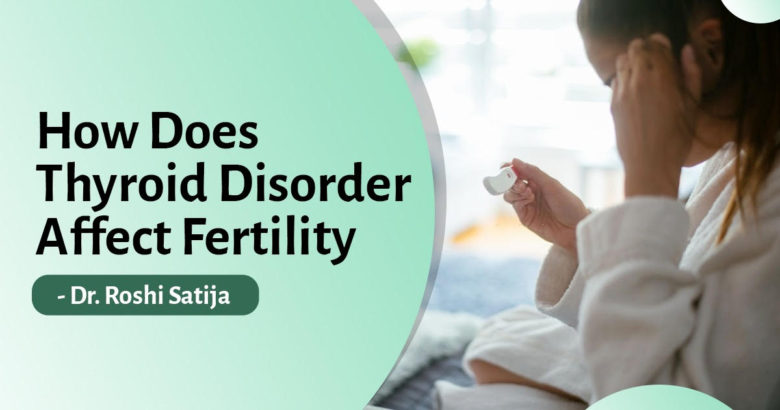How Does Thyroid Disorder Affect Fertility?
The relationship between your thyroid gland and fertility is an essential and, at times, complicated part of conception. The thyroid gland is a butterfly-shaped gland in the neck that helps regulate the body’s metabolism and other vital functions such as controlling muscles, heart, and digestive functions. At the same time, fertility is a couple’s ability to conceive a baby with natural conception methods. Thus, any imbalance leading to thyroid disorder affects fertility.
Thyroid Disorders occur when your thyroid gland either overproduces (hyperthyroidism) or under produces (hypothyroidism) thyroid hormones- triiodothyronine (T3), thyroxine (T4). Negatively affecting the body’s vital functions leading to dysregulated weight gain or weight loss and hindering the body to function energetically.
Looking at Thyroid Disorder and Fertility Together:
Thyroid disorder can affect both the ability to become pregnant and healthily carry a fetus post- conception. An abnormal thyroid hormone can interfere with ovulation and, in turn, with normalcy in the menstrual cycle. If the thyroid levels are unregulated, it hinders implantation-leading to early miscarriage due to incomplete implantation.
Fertility is not only a female’s concern. Thyroid disorder in men can also interfere with an incapacity to conceive. It destroys sperm quality and sperm movement to fuse with the egg for implantation.
Hypothyroidism and fertility:
A condition in which thyroid levels are lower than the normal range. It affects fertility in the following ways:
- Vying with ovulation
- Disrupting menstrual cycle
- Causing the risk of miscarriage
- Causing the risk of premature birth
Hyperthyroidism and fertility:
A condition in which thyroid levels are more than the normal range. It affects fertility in the following ways:
- Disruption in the menstrual cycle
- Reducing sperm count
- Increasing risk of early-term miscarriage
- Risk of premature birth
Thyroid Autoimmunity and Fertility:
A condition in which the body makes antibodies to attack the thyroid gland and turn it on or off- increasing the risk of hypothyroidism. It can affect fertility:
- Difficulty in fertilizing the egg
- Difficulty in implantation
- Increasing the risk of miscarriage
Thyroid conditions can complicate fertility but does not mean it will completely stop it from happening. If you are facing fertility issues, consult a gynaecologist. You are always a step away from the right treatment. For any queries, call on- 9958722133.


Leave a Comment